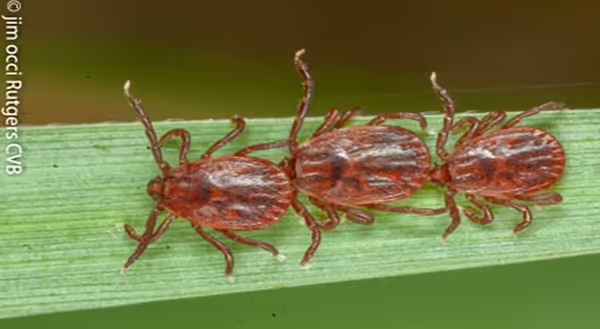
A recent case in Van Buren County, located in southeast Iowa, has brought new awareness to an emerging threat in the cattle industry. Sadly, 20 heifers were lost due to a disease many of our herds are still naive to – Theileria orientalis Ikeda. This disease is transmitted by the Asian Longhorned Tick (ALT), an aggressive parasite that poses a growing concern for livestock producers across the Midwest.
The Asian Longhorned Tick is particularly concerning because it reproduces parthenogenetically, meaning that one female tick can spawn thousands of offspring without ever mating. This trait makes it extremely difficult to control once established in an area. To make matters more complex, this tick isn’t picky about its hosts. It has been found on a wide range of animals including cattle, dogs, white-tailed deer, raccoons, horses, chickens, birds of prey, and even songbirds like the northern cardinal and blue jay.
When it comes to pasture and livestock management, our current tools for tick control are limited. Spraying pastures isn’t very effective because the product must come into direct contact with the tick. And with numerous wildlife species moving freely between fields and fence lines, new ticks can easily be reintroduced.
Pasture & Herd Recommendations:
- Pour/spray cattle based on actual weight.
- Quarantine new animals for at least 3 weeks and treat them for ectoparasites.
- Mow a dry buffer strip along pasture edges near woods.
- Check your herd weekly for ticks.
While these recommendations focus on cattle, they also apply to other livestock and equines. If you're traveling with pets through tick-prone areas, check them thoroughly and stick to your veterinarian’s recommendations for parasite prevention.
Protect Yourself, Too
It’s not just animals at risk. Everyone spending time in pastures, woods, or tall grass should check for ticks before and after showering. Bag clothes or toss them in a dryer on high heat for 20 minutes. If washing, use hot water followed by high heat drying to ensure all ticks are killed.
Read the full article here: https://www.extension.iastate.edu/news/beef-cattle-disease-confirmed-iowa-first-time